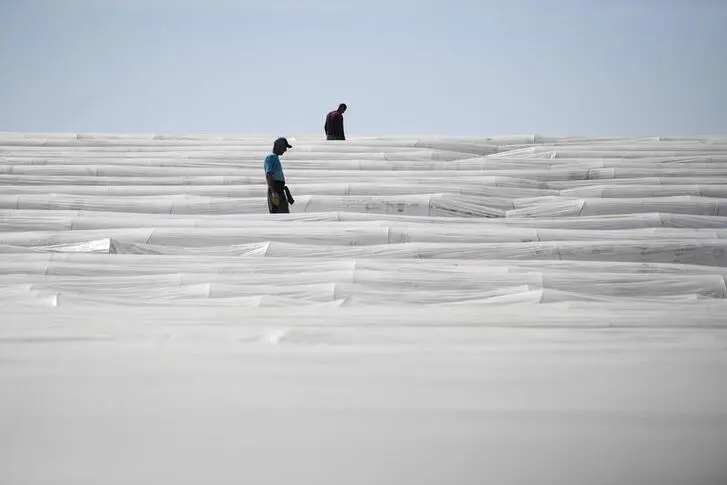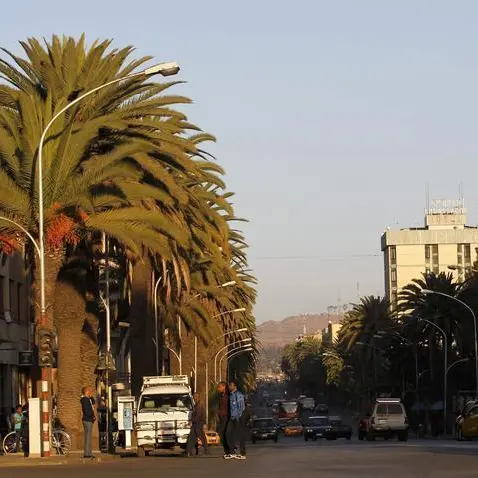PHOTO
A recent cold snap in France and Germany is likely to have caused limited damage to waterlogged grain fields, with heavy showers that further delayed sowings ahead of this year's harvests of greater concern, analysts said.
"Since mid-December there has been no significant progress in sowings, which means there will be a large carry over to spring grains such as spring barley, maize and sunseed," Jeanch-Charles Deswartes from French crop institute Arvalis said.
The fall in winter grain area could be more than 500,000 hectares, depending on whether farmers decide to resow winter cereals on waterlogged parcels, where crops barely emerged or are poorly tilled.
"Even with perfect weather it will be hard for yields to compensate, which means one should expect a lower crop," Deswartes said. "The question is whether the water excess will have hurt crops," he added.
The cold snap in the past days would likely hurt waterlogged fields, but was not enough to damage well-developed crops and helped farmers access their fields for resowing.
Germany also experienced a sharp weather change as the new year started, with temperatures falling lower than in France, to minus 7 to 10 degrees Celsius in many parts. Some winter kill was possible, but not yet visible.
"Snow cover is rather thin in some areas. After heavy rain and warm temperatures over Christmas, there is concern about the impact of deep frosts on grains in waterlogged fields," one German grains analyst said.
Germany's national statistics agency expects the winter wheat sown area for the 2024 harvest to fall by more than 7% from the year before due notably to soggy field conditions.
In Poland protective snow cover was thin and some damage was possible, said Wojtek Sabaranski of analysts Sparks Polska.
"In most regions of the country winter crops have been exposed to low temperatures and frosts. Therefore, some local winterkill cannot be ruled out, especially to late-planted winter rapeseeds, but at the moment it is just too early to tell," Sabaranski said.
In Britain, wet weather has also been a major issue with rains particularly heavy in the south-east and north-west.
"Winter crop condition continues to suffer from the wetness which has been plaguing the UK since the autumn," CRM Agri said in a report this week.
A survey by the Agriculture and Horticulture Development Board (AHDB) last month saw a 3% decline in the UK wheat area to 1.66 million hectares, the lowest since 2020.
(Reporting by Sybille de La Hamaide in Paris, Michael Hogan in Hamburg and Nigel Hunt in London; Editing by Alexander Smith)





















